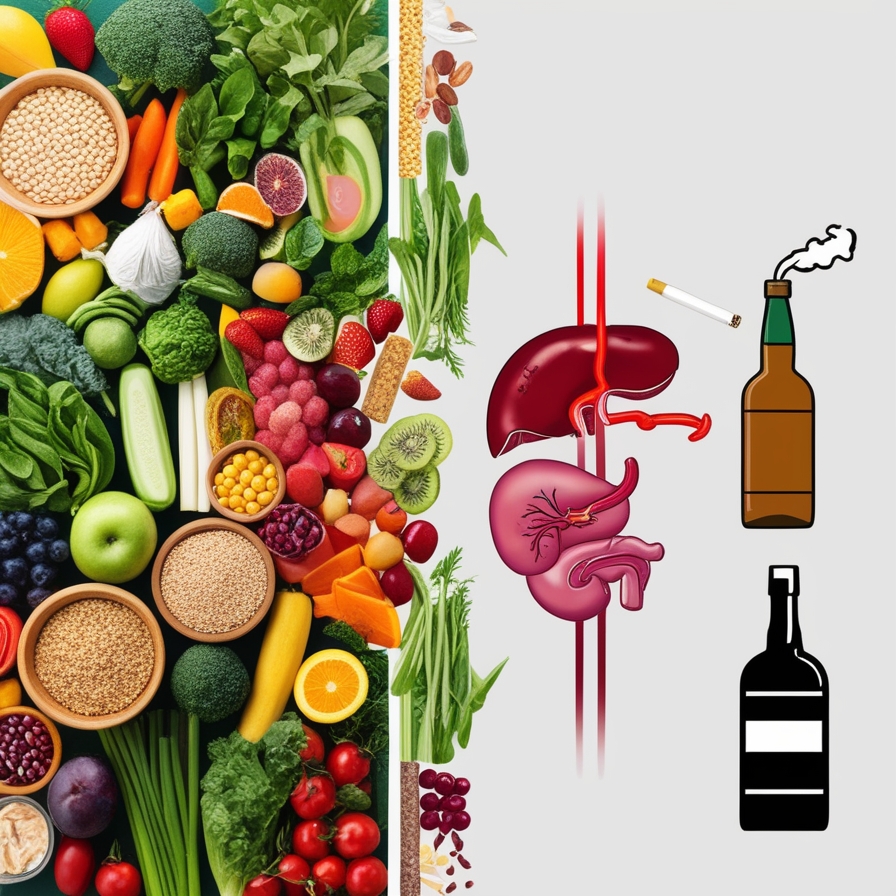Living a long and healthy life starts with the choices you make today, your 20s and 30s are the foundation years for building habits that will support your physical, mental, and emotional well-being as you age, by adopting the right nutrition, lifestyle practices, and avoiding harmful habits, you can ensure a stronger, more vibrant old age, in this article, let’s explore the foods to prioritize, habits to maintain, and the pitfalls to avoid for a healthy and fulfilling life.
The Best Nutritional Foods for Longevity
Your diet plays a crucial role in your long term health, incorporating nutrient rich foods now can help prevent chronic diseases and promote vitality later in life.
1. High-Fiber Foods
Fiber improves digestion, supports heart health, and keeps cholesterol levels in check, including high fiber foods in your daily diet can also help you maintain a healthy weight and prevent diabetes.
Examples. Whole grains (oats, Millet, brown rice) Beans (lentils, chickpeas) fruits (berries, apples, pears), and vegetables (broccoli, spinach, carrots).
2. Healthy Fats
Omega-3 fatty acids are essential for reducing inflammation, promoting brain function, and improving heart health.
Examples. Fatty fish (salmon, mackerel, sardines), avocados, walnuts, Groundnuts, and Egusi.
3. Lean Proteins
Proteins are vital for muscle repair, metabolism, and overall body strength, consuming lean sources of protein helps maintain muscle mass as you age.
Examples. Skinless chicken, turkey, eggs, Plantain, Greek yogurt, and nuts.
4. Calcium and Vitamin D-Rich Foods
Strong bones are crucial for mobility and independence in old age, consuming calcium and vitamin D rich foods now will reduce the risk of osteoporosis.
Examples. Dairy products, fortified plant based milk, leafy greens (Pumpkin Leaves, Ugu) almonds, and sardines.
5. Antioxidant-Rich Foods
Antioxidants fight oxidative stress, reducing aging and the risk of chronic illnesses like cancer and heart disease.
Examples. Dark leafy greens, colorful fruits (berries, oranges, cherries), nuts, green tea, and dark chocolate (80% cacao or higher).
6. Probiotic and Prebiotic Foods
A healthy gut is linked to immunity, better digestion, and even mental well-being, probiotics supply good bacteria, while prebiotics feed them.
Examples. Yogurt, Kunun Aya, fermented cabbage, Locust Beans, garlic, onions, bananas, and whole grains.
7. Hydrating Foods
Proper hydration is essential for energy, skin health, and organ function. Consuming hydrating foods alongside drinking water can help.
Examples. Watermelon, cucumbers, oranges, celery, and herbal teas.
Foods to Avoid for Better Long-Term Health
Not all foods contribute positively to your health, here are the ones you should limit or eliminate to reduce your risk of chronic diseases.
Highly Processed Foods
These include packaged snacks, instant noodles, and sugary cereals, they’re often high in unhealthy fats, sodium, and preservatives.
Sugary Foods and Beverages
Examples. Sodas, energy drinks, candies, and desserts, overconsumption of sugar can lead to weight gain, diabetes, and tooth decay.
Trans Fats
Found in fried foods, margarine, and some baked goods like cookies and pastries, trans fats increase bad cholesterol (LDL) and lower good cholesterol (HDL), leading to heart disease.
Excessive Red and Processed Meats
Examples. Bacon, sausages, deli meats, these are linked to heart disease, cancer, and high cholesterol levels.
Alcohol in Excess
Drinking too much alcohol can damage the liver, impair brain function, and lead to dependency.
Lifestyle Habits for Strength and Longevity
Good nutrition is only one piece of the puzzle, a healthy lifestyle complements your diet and amplifies its benefits, here’s how to ensure you are setting yourself up for a long and vibrant life.
1. Regular Physical Activity
Staying active improves cardiovascular health, strengthens muscles, and boosts mental well-being.
Aim for 150 minutes of moderate exercise weekly (e.g., brisk walking, cycling, swimming) or 75 minutes of vigorous activity (e.g, running, HIIT workouts)
Incorporate strength training at least twice a week to maintain muscle mass and bone density.
Add flexibility and balance exercises like yoga or Pilates to prevent injuries and enhance mobility.
2. Prioritize Sleep
Sleep is when your body repairs itself and consolidates memory, lack of sleep is linked to obesity, heart disease, and reduced immunity.
Aim for 7-9 hours of quality sleep per night.
3. Manage Stress Effectively
Chronic stress can lead to heart disease, digestive problems, and mental health issues, practice relaxation techniques to keep stress under control.
Suggestions. Mindfulness, meditation, journaling, deep breathing exercises, or spending time in nature.
4. Build and Maintain Social Connections
Having strong relationships improves mental health and even longevity, isolation and loneliness, on the other hand, can negatively impact your well-being.
5. Stay Hydrated
Water is essential for energy, skin health, and overall organ function.
Aim for 3.7 liters of water daily, depending on your activity level and climate.
6. Regular Health Checkups
Proactively monitor your health with regular screenings for cholesterol, blood pressure, and blood sugar, early detection of potential issues can prevent serious complications.
Habits to Avoid for a Longer Life
To maximize your lifespan and quality of life, avoid these harmful habits.
Smoking
Smoking increases the risk of cancer, heart disease, and respiratory illnesses, quitting at any age significantly improves your health.
Chronic Sedentary Lifestyle
Sitting for long periods can lead to obesity, weak muscles, and poor circulation, break up long periods of sitting with movement.
Skipping Meals or Crash Diets
These habits slow metabolism and can lead to nutritional deficiencies, impacting long-term health.
Excessive Screen Time
Overuse of screens can cause poor posture, eye strain, and mental health issues, set limits and take breaks to rest your eyes and mind.
Conclusion, Invest in Your Future Health Today
Your 20s and 30s are the perfect time to build the habits that will keep you healthy and strong in your later years, focus on eating a balanced, nutrient-rich diet, staying active, and maintaining a healthy lifestyle, by avoiding harmful foods and habits, you will set yourself up for a longer, more fulfilling life, small, consistent changes today can make a big difference tomorrow, and for decades to come.


Nice one 🤝